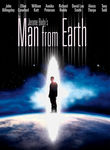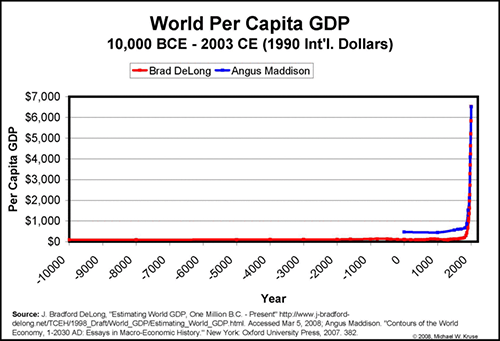Show it or sell it!
February 15th, 2022
The March 2022 Reason magazine explains in “Free the Art! Sell the Art!” that public museums display as little as 2 percent of the artworks they hold (the rest in storage), and have a habit of buying up art only to hide it away for decades where nobody will ever see it or know it exists.
And, worse, the Association of Art Museum Directors has a policy enforcing exactly that!
My response:
It’s not often I say “there ought to be a law”, but there ought to be a law. Taxpayers do not fund museums for the purpose of hiding art in storage. Any work held by an institution that receives public funds should be on public display at least 6 hours a day for 100 days out of every 2 years (excluding limited periods for restoration or maintenance) – or promptly auctioned to the highest bidder.
Charitable foundations that fund museums should insist on the same rule.
What would our ancestors think?
May 6th, 2020

Update, June 2020:
After a few months, I’m starting to think my readers don’t “get” what I’m upset about here. So I’ll explain.
The notion that wealthy people, in the name of “fashion”, should dress up to look poor – literally, in clothes falling to rags – is disgusting.
It shows an utter lack of awareness of what poverty is. What hunger is. And the human misery they entail.
These scourges have ravished mankind throughout history. Billions of our fellows lived lives of want, of hunger, of near or actual starvation. As a result they lived with disease, degradation, filth, pain, ignorance, superstition, and fear. This was the common condition of virtually everyone, across the world, for most of history. It was no fun.
It’s not “chic”. It’s not something to be admired or emulated. It’s something to celebrate that we’ve almost eliminated.
My niece, raised in a wealthy suburb of Boston, at age 12 had never heard of the word “famine”, or of the concept. She had no idea what it was, or that such things could exist. It had to be explained to her. Famine – mankind’s oldest enemy.
How is it possible for moderns to be so ignorant of history? Of the state of the world? Of the sources of suffering? Of the realities of nature?
How is it possible to think playacting as a sufferer is “fashion”?
Presumptive insanity
March 17th, 2019
Any adult who actually wants to be President of the United States has something deeply wrong with them, and should be automatically disqualified.
Instead, we should have a system where the citizens elect a small number of representatives, who would meet together and jointly pick someone to do the job.
We could call it an “electoral college”.
On groupism
February 28th, 2019
There’s an old joke (this version is from C. Fink):
A Jewish man and his friend, a Chinese man are sitting at a bar.
The Jewish man turns and punches his friend in the face.
The Chinese man shouts “What was that for?”
The Jewish man replies, “That was for Pearl Harbor.”
The Chinese man says, “I’m Chinese not Japanese!”
The Jewish man replies, “Chinese, Japanese, what’s the difference?”
Then the Chinese man punches the Jewish man in the face.
The Jewish man says “Why did you do that?”
The Chinese man replies “That’s for the Titanic.”
The Jewish man says, “I didn’t sink the Titanic. That was an iceberg!”
The Chinese man smiles and says, “Iceberg, Goldberg, what’s the difference?”
That’s groupism. A random Japanese person is not responsible for Pearl Harbor. That crime was committed a long time ago by other people.
And a random iceberg isn’t responsible for sinking the Titanic. It was another iceberg that did it.
Groupism is blaming innocent people for the crimes of others, because of some irrelevant thing they have in common.
And yet, there are many societies in which collective guilt is a thing – mostly small, primitive societies. Collective guilt has the useful property of making everyone watch one another to prevent crimes – because everyone, including the innocent, will be punished for any crime committed by a single member of the group.
Modern people usually have big problems with that idea, but it has been a successful way of living since ancient times.
I’m one of the people who has a problem with it. My concerns are:
(1) Collective guilt breaks the whole idea of individual freedom and responsibility. In that system, my neighbors get a say on how I live, because they will suffer the consequences of my bad decisions.
But freedom doesn’t mean anything if it doesn’t include the ability to make choices that other people don’t approve of. If you care about individual freedom at all, this is a huge problem.
(2) People usually don’t get to choose which groups they belong to. If I’m born Japanese, and the world treats me as Japanese, and so guilty of the crimes of all other Japanese, I’m screwed – because even if I disagree with and oppose the actions of other Japanese, I still get blamed for what they do.
If people could join and leave groups voluntarily (as with “corporations, associations, colleges, etc.”) then this would be much less of a problem. You’d still have an element of collective responsibility, but people who disagreed with the collective could leave it.
But that’s not how groupism usually works.
(3) Collective guilt societies usually also have collective responsibilities. If I’m born into one, it may be (for example) my duty to obey my elders, to marry only whoever they decide I should marry, to live where they tell me, to do the work that they tell me to, etc., etc. One day, if I live long enough, I may become an elder and get to tell other people what to do.
Basically this means that everyone is a slave of the group. For life. With no way of leaving slavery without breaking the rules of the society.
Again, if you care at all about freedom and think slavery is a bad thing, this is a bad thing.
(This post is adapted from an answer and comments on Quora.com.)
Some movie reviews
May 26th, 2018
These are cut-and-pasted from Netflix. With very rare exceptions, I only write reviews for movies I disliked – it’s my way of getting revenge.
There are no spoilers here. All ratings are in the range 1 to 5 stars.
[Edit: I see that 12/14 of the reviews below use the word “stupid”. I suppose that says something not terribly flattering about myself. So be it. It’s still how I feel about these films.]
Things to Come
The Gestapo will save us from war, hatred, and irrationality and create a paradise of identically black-suited heroes who rule and identically white-gowned citizens who obey, all living in a futuristic world with lots of pneumatic tubes. Underground. And they will have television. But, of course the Gestapo (or is it Stasi? Or Checka? hard to tell) rule in the name of Humanity, so it’s all good. But they don’t approve of private airplanes. H.G. Wells personally oversaw every detail of this film. It supposedly represents his vision of an ideal (!) future world. (He supported something he called “liberal fascism”, and it shows.) Acting is high school play quality. (On the low end of that.) Special effects were good for 1938. I give it 2 stars, both for historical interest. The film isn’t worth watching aside from that.
Sunshine
I used to think Gravity was the worst recent science-fiction film. No longer. Gravity was stupid, terrible, and stupid (with great special effects and pretty good acting). But Sunshine is bad on a whole different level. It has *layers* of stupid, each dumber than the next. Layers upon layers of stupid. It’s really an amazing achivement. But not amazing enough to make it worth watching. It’s not “fun stupid” like Plan 9 From Outer Space. It’s just…. well, don’t watch it.
Interstellar
The stupid – it hurts. Physicist Kip Thorne was involved with the scriptwriting. Thanks to him the part about wormholes isn’t stupid. Just the other 99% of the movie is stupid. If you know anything at all about engineering or physics, that is. I won’t give spoilers, but please note it’s difficult to hide the launch of a Saturn V-sized rocket. And the vicinity of black holes tend to have LOTS of x-rays. Not a place you’d want to (or be able to) live. Plus, a little 1930s-style dust bowl is no reason to abandon an entire populated planet. See astronomer Phil Plait’s comments at Slate.
The Man from Earth
Some interest. Others have done it better in written science-fiction. The Mel Brooks/Carl Reiner version (2000 Year Old Man) is much funnier. This movie is all talking-heads (it cost $200,000 to make). And the characters are cardboard cut-outs, very poorly written. But some interesting ideas.
You wrote this on Sat Jan 06 15:36:05 GMT 2018
Mr. Nobody
There’s a solid 25 or 30 minutes of entertainment lurking in this 2 1/2 hour movie. It’s slow. Really slow. The filmmakers even showed they know it – there’s a line in the film “it’s like a French movie – nothing happens”. Synopsis (no spoilers): Choices have consequences. I think most people already knew that, but the film assumes that it’s a mind-blowing concept.
You wrote this on Sun Jul 02 22:27:40 GMT 2017
Argo
Intrinsically an interesting true story, but way too Hollywood for my taste. As others have mentioned, the film inaccurately minimized the Canadian role, and positively insults the heroism of the British and New Zealand embassy staff (for no conceivable reason). Worse for my enjoyment of the film was the obviously made up last-second hitches inserted by the filmmakers. Without spoiling, there are two huge omg-we’re-almost-there-BUT moments, inserted by the filmmakers for suspense. Plus a lot of smaller ones. But this is a true story. These have no basis in history, and are such obvious Hollywood tropes as to break my belief that I was watching something real. It’s like when James Bond defuses the bomb with 1 second left on the clock. You know you’re watching a scriptwriter’s cheap trick, not something that happens in real life.
Gravity
I just watched it. I’m still stunned. Stunned by the utter stupidity of this movie. From the very first minute this movie is idiocy after idiocy. Read the other reviews for some of them, but I could write a book about everything wrong – with physics, with technology, with psychology, with common sense – in this movie. Just in the first 5 minutes (no spoilers): 1) She’s a MEDICAL doctor, yet she’s there to work on an upgrade of the Hubble telescope. Huh? 2) She says she’s nauseous – while in a spacesuit. Does she immediately go inside and take off the suit? Does she have ANY IDEA what will happen if her stomach goes while wearing a space helmet? (Answer: She will choke to death on her own upchuck, while totally blinded as it coats the inside of her helmet.) 3) The stars are visible IN THE DAYTIME. Clooney is DOING CIRCLES (==burning fuel like crazy – he should be out in 90 seconds at that rate) around the shuttle in a jetpack at a speed that would kill him instantly if he hit anything. 4) People describe things being at “7 o’clock” while floating IN OUTER SPACE (so the clock doesn’t even have an up and down, let alone facing in any particular direction) 5) People are asked to “describe their position” while floating in F***ING ORBIT! (What the heck are they supposed to say… “I’m 100 feet south of the tree?!?!?”) 6) She’s a NASA astronaut, but she “crashed” Soyuz in the simulator EVERY TIME. But they still let her fly. And that’s just in the first 5 minutes. It goes on just like that for an hour and a half. My head is still spinning. WHY does Hollywood do this? This movie had a huge budget and A-list stars. How much extra could it POSSIBLY cost to hire a scriptwriter smarter than Bozo the Clown?
You wrote this on Sun Jun 08 03:57:50 GMT 2014
The Hunger Games
Too much killing of innocents. Not enough revolution. “When the people fear their government, there is tyranny; when the government fears the people, there is liberty.” Thomas Jefferson
You wrote this on Sun Nov 25 04:00:40 GMT 2012
Babel
A rather long slow movie about people doing amazingly stupid things and suffering for it. Visually interesting, the characters are hard to sympathize with because they act so stupidly. I found myself feeling they deserved worse than they got.
You wrote this on Wed Feb 15 14:50:33 GMT 2012
3:10 to Yuma
It’s hard to measure these things accurately, but this may be the stupidest movie I’ve ever seen in my life.
You wrote this on Sat Nov 05 10:05:12 GMT 2011
Passenger 57
Too stupid for words. A good choice for MST 3K movie night. Watch for the big fight scene where everyone on the plane needs oxygen masks to stay conscious except, of course, for the guys fighting.
Moon
Stupid movie. First – the premise. An astronaut takes a 3-year stint, all alone, on the far side of the moon mining He-3. 3 years? All alone? Only a crazy person would do that – and it’s hardly a job for crazies. So the premise is unreasonable to start with. Next, part of the plot turns on having no direct communications with Earth, except via relay thru Jupiter (so no real-time comms). Supposedly the comsat is broken. Yet the base is just a short drive from nearside, where the astronaut can easily make phone calls to Earth. Come on – so close to nearside yet there’s no wire to an antenna there? Second, the science/special effects. When he does talk to Earth, there’s no delay. There is low-gravity outside the base, but inside the base it’s just normal Earth 1-G. And bright lights outside give visible beams in the “hazy air”. On the moon? In a vacuum? It was so un-moonlike that, at one point in the movie, the main character is exploring outside the base, and makes a “discovery”. I thought the “discovery” was going to be that HE’S NOT ON THE MOON AT ALL. (But he is; I haven’t spoiled it.) I love good hard SF, and while this film borrows heavily from 2001 and other classics, it is not in that league.
You wrote this on Sun Jun 13 03:01:41 GMT 2010
Iron Man
Stooopid. Plot is weak and very, very predictable. But the “technology” just violates way too many physical laws in far too obvious ways for me to suspend disbelief. And I’m a SF fan! If you liked the comic book, maybe you’ll like this. As an engineer, the whole idea of a “super-suit” just strikes me as ridiculous. Are tanks built in the shape of giant armed men? Hardly. Then there’s the rockets with no need for reaction mass, and people getting smashed into things at hundreds of miles per hour with no injury (suit or not, the human body is only so strong). The special effects were good. And the focus was sharp.
[Added 2018: I liked some of the later ones better.]
You wrote this on Sun May 02 03:00:39 GMT 2010
Spider-Man 3
I liked the first two Spiderman movies. This one was just too stupid to bear, from beginning to end. By halfway into the movie, it had become a MST 3000 session with everyone in my family making jokes about how idiotic this movie was. Even my 6 year old thought it was full of cliches. (He did like it, tho.)
Rewards, incentives, and fairness
May 26th, 2017
In a comment on SlateStarCodex today the author (“leoboiko”) advocates a programme of socialism under the assumption that intelligence and ability are inherited, rather than earned, by their possessors. She said,
For one thing, this means that the idea of “meritocracy” is inherently unfair. Giving people access to wealth and resources based on their IQ-related achievements is as unfair as making people richer when they’re born taller. We would want some sort of social program to guarantee everyone access to a decent life according to their needs, not according to their abilities.
And went on to illustrate the unfairness of a world in which wealth was allocated according to height.
I do think intelligence and ability is mostly genetic, and I agree that’s unfair. My response is,
What we are rewarding (and want to reward) is success in helping society progress – materially, culturally, etc. Helping other people. Making the world a better place to live.
Our society is not meritocratic in any sense. We don’t reward merit. Or intelligence. Being meritorious, well-intentioned, hard-working, intelligent, and capable gets you…nothing. What gets rewarded (imperfectly, of course) is actually delivering the result – benefits to other people, as evaluated by those people, by their willingness to voluntarily trade wealth for those benefits.
Intelligence is associated with wealth because we reward pro-social activity, and intelligence makes success in such activity more likely. Height doesn’t (except in basketball).
Steve Jobs wasn’t wealthy because he needed it, or because he was a nice guy (he seems to have been an unpleasant person in many ways). He was wealthy because he created great things that benefited billions of people.
That’s as it should be. It’s not, and never has been, about fairness. It’s about incentives.
Without such incentives, capable people wouldn’t try very hard. And wouldn’t control large amounts of capital for use in their projects. And we all would be far worse off.
Of course I’m not claiming our society does this perfectly or consistently. There are lots of ways to cheat the system, and lots of people who become wealthy in ways other than “making the world a better place” – most obviously, monopolists, tricksters, and power brokers. I advocate fixing that.
But the basic system works. Making the world a better place to live is more important than fairness.
Stupid vs. Evil
November 5th, 2016
It is traditionally held in the United States that there are two major political parties, which can fairly be described as the “Stupid” party and the “Evil” party.
Thoughtful partisans on each side are firmly convinced that their own party is the “Stupid” party, while the opposition is the “Evil” party.
(If you think the situation is less symmetrical than that, I submit that this is an indicator of your partisanship.)
However, this is wrong.
Both parties, like the electorates that support them, and humanity in general, are about 80% stupid and 20% evil.
Proposed anti-political dynasty amendment
November 5th, 2016
A proposed amendment to the Constitution of the United States:
No person who is a child, grandchild, sibling, parent, spouse, or former spouse of any present or former President of the United States shall be eligible to the Office of President. This article shall not apply to any person holding the office of President, or acting as President, during the term within which this article becomes operative.
Despite what you may think, this is not motivated by any particular candidate or former President; just something I’ve been meaning to propose for a while.
Why don’t experts speculate?
June 29th, 2016
Experts in any field seem very unwilling to speculate, or even endorse speculation, about long-term developments in their field.
Whether it’s physics, or AI, or medicine, or politics, experts don’t want to talk about their ideas on long-term developments. In those rare cases where they do, they often use pseudonyms (many professional scientists have published science fiction, but only rarely under their real name).
I’m not sure why this is, but I’ve been collecting possible reasons:
1 – They have a lot to lose as experts if the speculations turn out wrong, and by their nature speculations are…speculative.
2 – They are very focused on immediate problems and progress. This is what they’re paid to to do, and where they get their professional prestige.
3 – They are more keenly aware than non-experts of the many difficulties there will be in the actual implementation of speculative ideas. While they may know intellectually that these difficulties are not insurmountable in principle, as an expert they’re overwhelmed by the amount of work yet to be done, and tend to assume it’ll never happen.
4 – Even if they think the speculations are reasonable and will turn out correct in the long run, because of #3 they fear losing professional respect within their field – other experts may be discouraged by the amount of work yet to be done, and so consider as “crazy” anyone who takes a longer-term view.
Supporting these ideas is the observation that those few experts who are willing to engage in speculation tend to be from the very top (Nobel laureates, etc.) or very bottom of their field.
Those, in other words, who are either so respected they don’t fear a loss of status, or who have no status to lose in the first place.
In a recent post on his blog Overcoming Bias, Robin Hanson notes:
we often have academics who visit for lunch and take the common academic stance of reluctance to state opinions which they can’t back up with academic evidence
Which doesn’t directly explain why they don’t want to, while providing an excuse. Hanson suggests:
One does not express serious opinions on topics not yet authorized by the proper prestigious people.
Or, as Stephen Diamond has suggested,
Long-term speculation is hard to falsify until its propounders are safely dead. I suspect this is the reason for reluctance: it may seem a cheap way to get acclaim without empirical responsibility or consequences.
I think that’s a charitable interpretation – I suspect Hanson is closer to the truth.
Free speech and the left
May 29th, 2016
What is going on with the left and free speech?
Decades ago self-described liberals were consistently in the forefront of defending the right to free speech and the first amendment.
Lenny Bruce was the poster boy/martyr for this cause. Liberals defended pornography and communists. They consistently said “the answer to speech you don’t like is more speech” – not controls on speech.
The ACLU became famous for defending unpopular speech, even to the extent of defending the right of neo-Nazis to march though the largely Jewish Chicago suburb of Skokie.
From George Orwell’s 1984 to the Berkeley Free Speech Movement to denunciations of Joe McCarthy, much of the left seemed to define itself as defending freedom of expression.
But in recent years it seems the situation has turned 180 degrees. The #1 cause célèbre among all my left-of-center friends is reversing Citizens United. Campus protests demand censorship and “safe spaces”, and aim to drum professors advocating politically incorrect views out of the academy.
And then we have:
Arrest Climate-Change Deniers – Gawker
New Inquisition: Punish climate-change ‘deniers’ – WND.com
Al Gore at SXSW: We Need to ‘Punish Climate-Change Deniers’ and ..
Climate “Deniers” Must Be Jailed or Killed | – Acting Man
This all seems a very long way from the impassioned defense of free speech the left (in the US) used to stand for.
What happened? Why?
I asked an insightful slightly left-of-center friend, who said,
“Liberals will care about free speech if and as it fights harm and oppression and advances equality. There are a handful of people who care about free speech as an end in itself, but not many.”
I’m not sure if that’s correct. But if it is, what does that say about the contemporary left?
If the left of the 1940s, 50s, and 60s thought that free speech would advance its goals, helping to undermine the status quo, does it now oppose free speech because it sees itself in a position of power, able to dictate what are and aren’t acceptable ideas?
When and how did that change? Did the fall of the Soviet empire strengthen the left in the west, instead of discrediting it?
I’m confused. But as someone who really does care about free speech, it’s terribly disappointing.















